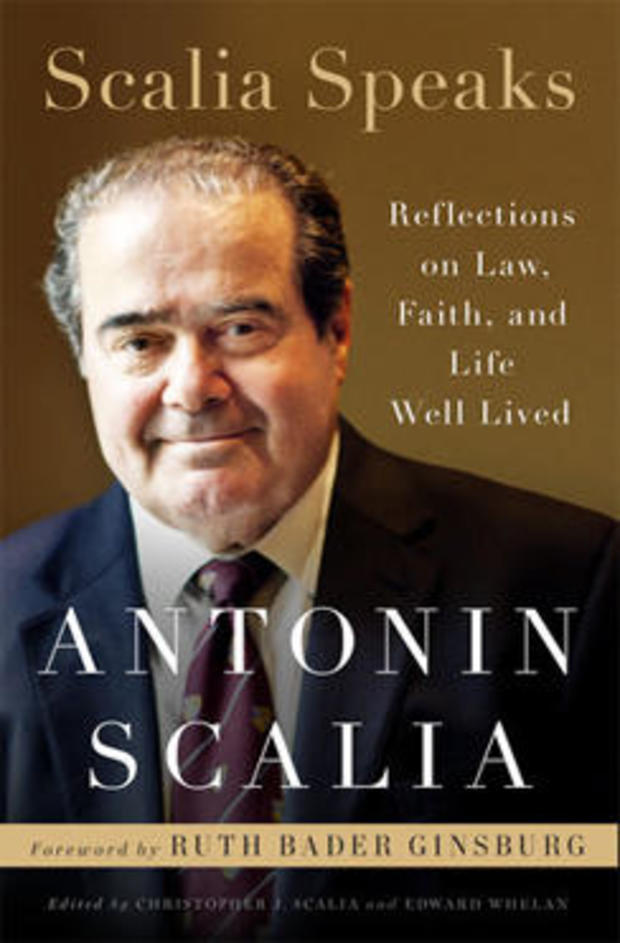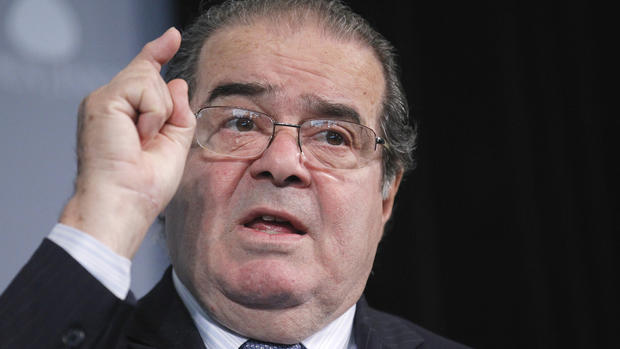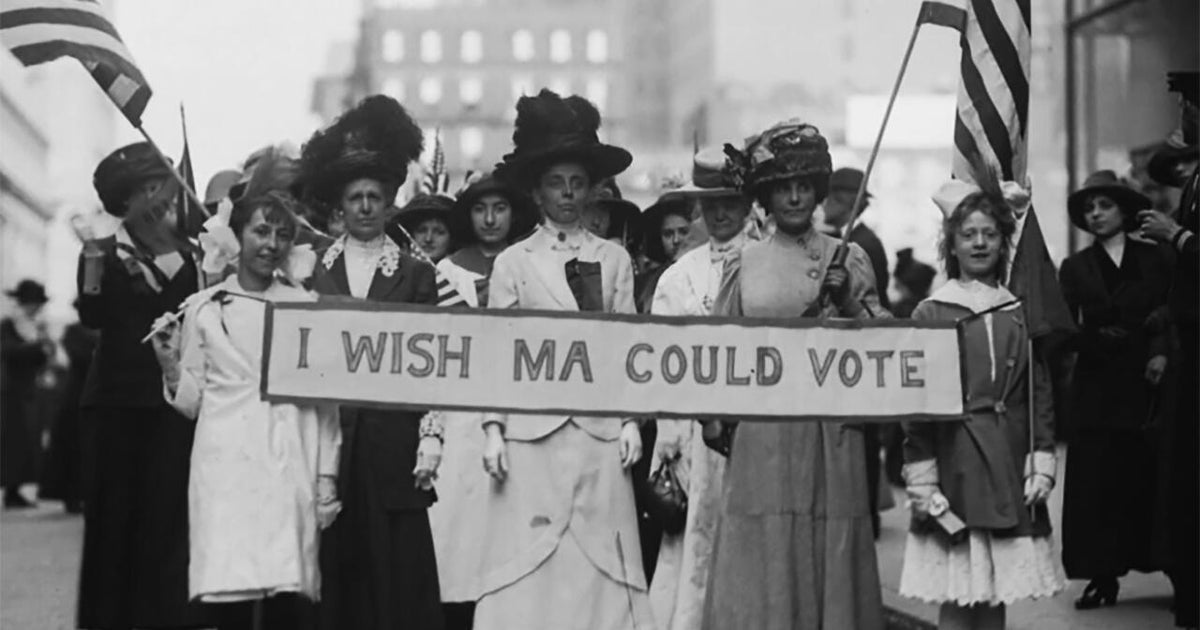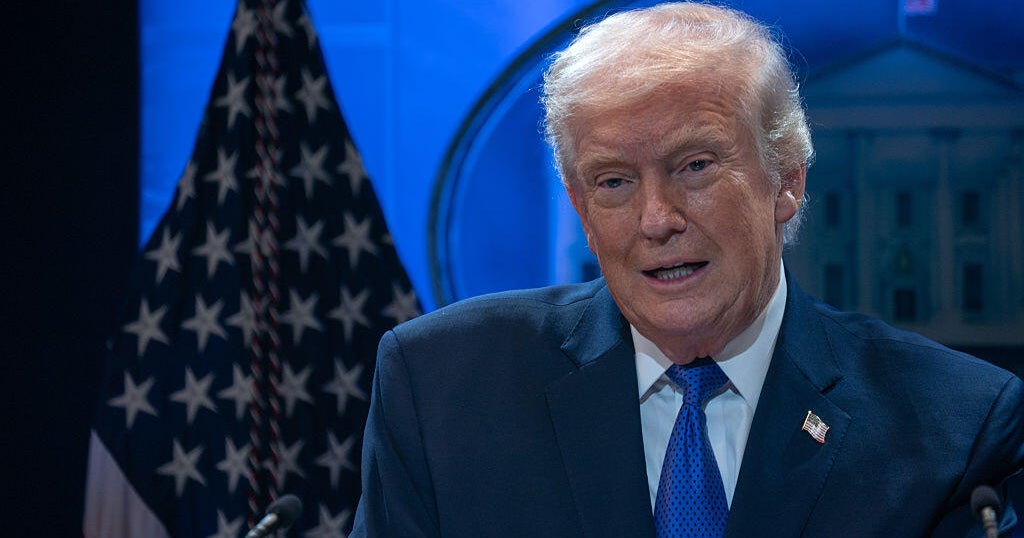In my opinion: Justice Antonin Scalia speaks
Views of his opinions may vary. But few would argue that late Supreme Court Justice Antonin Scalia was an American original. Here's Mo Rocca to make the case:
"I can be charming and combative at the same time. It may well be that I'm something of a shin-kicker."
The late Justice Antonin Scalia loved to argue. "That's one of the things I miss most about him, actually, is just sparring with him," said Scalia's youngest son, Christopher. "He loved it professionally, but he loved it at the dinner table or whatever. It was a lot of fun."
"I attack ideas. I don't attack people. And some very good people have some very bad ideas."
Justice Scalia, a conservative giant whose opinions sometimes polarized the nation, believed the road to persuasion was paved with humor.
"My court owed no apology whatever for Bush v. Gore. We did the right thing. So there!"
"Your father was famously funny from the bench," Rocca said.
"He was very funny," Christopher said. "He told jokes very well. His offhand quips were also very funny."
Scalia, who died in February of last year, wasn't the least bit shy. He was, in his son's words, "a little bit of a ham," starring in his high school's performance of "Macbeth," and performing cameo roles in operas alongside with Justice Ruth Bader Ginsburg. "I think these speeches were an opportunity for him to show that performative side," Christopher said.
In his speeches -- many compiled in a new book, "Scalia Speaks" (Crown Forum) -- Scalia shared his views on topics as far ranging as the arts, games and sports, and the Holocaust.
"One of his main points in that speech is that progress is not inevitable," said Christopher, who reads the speeches for the audio book. "Nazi Germany was a very refined, well-educated culture and country. But the people were still capable of committing these unimaginable atrocities. And his point in that speech is to, obviously, never forget, but that it's possible to backslide."
"Modern man -- perhaps mesmerized by the phenomenon of constant progress in the physical sciences -- tends to think that constant progress in morality and ethics is also inevitable."
In some speeches Scalia courted converts to his conservative "originalist" reading of the Constitution.
"Sometimes people come up to me and they screw up their faces and say, 'Justice Scalia, when did you first become an originalist?' Like it's some kind of terrible disease I caught!"
Rocca asked Justice Ginsburg, "Did Justice Scalia get you to think differently about the law and the Constitution?"
"I understood his position," she replied. "And I had to think very hard, was I right in taking a less literal view?"
In fact, Scalia and Ginsburg, one of the court's foremost liberals, became what Scalia called a "mutual improvement society."
"It was good to have someone who is super-intelligent and is able to explain his point of view," Justice Ginsburg said. "It makes you think harder."
Scalia's wife, Maureen, added, "And he felt the same way. It was really important."
The Scalias and Ginsburg and her late husband, Martin, became close friends, often socializing together.
"And our adult children would be there," Maureen said.
"For me, it was easy, I had only two," Ginsburg laughed.
And the Scalias had nine -- "your own Supreme Court," Rocca said. And with five boys and four girls, "a close five-four split there."
The two women say such cross-the-aisle friendships were more common when Ginsburg and "Nino," as he was affectionately known, first took the bench.
"Everyone knew what his judicial philosophy was," Ginsburg said, when he was confirmed for the bench in 1986. The vote in the Senate was unanimous, 98 to zero.
"When I was appointed [in 1993], the vote was 96-3, and I was known as a flaming feminist," Ginsburg laughed. She misses "that kind of collegiality, the good relations, people who liked and respected each other, even though they disagreed on some important questions."
These days, Ruth Bader Ginsburg finds herself looking forward, by gazing back.
Rocca said, "1986 and 1993 are not that long ago, but it does seem increasingly like political opponents now view each other as enemies."
"Well, my hope is in my lifetime, we will get back to the way it once was," Justice Ginsburg replied.
For more info:
- "Scalia Speaks: Reflections on Law, Faith, and Live Well Lived" by Antonin Scalia (Crown Forum), released October 3 in Hardcover, eBook, and Digital Audio Download (read by Christopher Scalia); Available via Amazon





